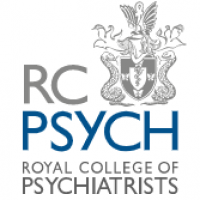What are the types of Bipolar Disorder?
Bipolar disorder can make your mood change dramatically from extreme highs (mania) to extreme lows (depression). The changes in mood can be overwhelming and distressing. But you may feel well between these periods. Previously called manic depression, it can affect all aspects of your life including work and relationships. When you’re experiencing manic highs and lows, the symptoms can be severe. You could experience changes in energy levels and to the way you act.
Here is an overview of the most common types of bipolar disorders.
Bipolar 1 disorder
Bipolar 1 disorder means you will have had at least 1 episode of extreme highs (mania) lasting more than 1 week. Mania can last 3-6 months if left untreated. Most people will experience depression between these times which can last 6-12 months without treatment.
Bipolar 2 disorder
With bipolar 2 disorder, you have periods of depression broken up with times of hypomania.
Cyclothymic disorder or cyclothymia
Cyclothymia means you will have experiences regular episodes of hypomania and depression for at least 2 years. The symptoms are milder than bipolar disorder, but cyclothymia can develop into bipolar disorder.
Mixed bipolar state
Experiencing mania and depression at the same time is called a mixed bipolar state. You may feel sad or hopeless but extremely energised at the same time.
Rapid cycling bipolar
if you have 4 or more depressive, manic, mixed or hypomanic episodes in 1 year it is called rapid cycling bipolar.
It is possible to change from mania to depression on a monthly, weekly or even daily basis.
Dr Behzad Basit is an experienced Psychiatrist who helps patients with Bipolar Disorder. With his medical career starting in 1988, Dr Basit been described by patients and colleagues as very approachable and can help patients experiencing problems with mood changes. His background in general practice, psychiatry and psychotherapy enables him to take a holistic approach in the assessment and management of patients.
We invite you to learn more about Bipolar Disorder.
To book a consultation with Dr Behzad Basit, please complete our contact form here.
Source: Mental Health UK
Dr Behzad Basit Professional Qualifications
- Medical Doctoral (MD), Tehran University of Medical Sciences
- Member of the Royal College of Psychiatrists, UK (MRCPsych)
- Honorary Senior Lecturer, School of Medicine, Imperial College London
- Honorary Visiting Associate, The Institute of Psychiatry, Psychology and Neuroscience, King’s College London
- Postgraduate Diploma in Mental Health Studies (University of Kent)
- Postgraduate Diploma in Healthcare Management (Manchester Business School) Trained in Cognitive Analytic Therapy









